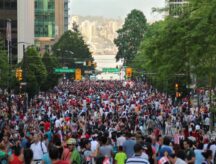Immigration To Canada Through A Provincial Program
Thousands expected to receive permanent resident visas following nomination by a province
Since the launch of the Express Entry immigration selection system earlier this year, the role played by Canadian provinces within Canadian immigration policy has changed significantly. The most significant adjustment has been with respect to how a portion of the Provincial Nominee Programs (PNPs) are now aligned with the federal Express Entry system.
The provinces of Nova Scotia, British Columbia, Saskatchewan, Prince Edward Island, and Manitoba have already unveiled their respective Express Entry categories, and proactive candidates for Canadian immigration are taking advantage of the opportunities presented by these PNPs.
Background
In Canada, the federal government and the provinces and territories share jurisdiction over the selection of immigrants. Geographically and politically, Canada is divided into 10 provinces and three territories. Apart from the territory of Nunavut and the province of Quebec, which has its own unique immigration system outlined below, all other provinces and territories have immigration programs that allow them to nominate individuals who wish to immigrate to Canada and who are interested in settling in a particular province. The federal government then attends to health and security matters before issuing the permanent resident visa.
Provincial and territorial governments have been using these programs to welcome new permanent residents to Canada. Each PNP is tailored to the specific needs of the provinces and territories, which aim to select new immigrants who will be able to settle into life and work in the region and effectively contribute to the community, both socially and economically.
PNPs and Express Entry

Provinces and territories are able to nominate a certain number of candidates through the Express Entry system to meet local and provincial labour market needs. These portions of the PNPs are known as “enhanced” nominations.
Candidates in the Express Entry pool who obtain a nomination from a province are awarded 600 points under the Comprehensive Ranking System, out of a possible total of 1,200. When these additional points are added to a candidate’s human capital and skills transferability points, it will result in an invitation to apply for permanent residence at the next draw from the Express Entry pool.
With the minimum scores required in the first two draws from the Express Entry pool having been 886 and 818, respectively, it follows that every candidate who was issued on invitation to apply for permanent residence had either a provincial nomination or a qualifying job offer from a Canadian employer.
All candidates must meet the eligibility criteria of one of the following federal economic immigration programs in order to enter and be selected from the Express Entry pool:
- Federal Skilled Worker (FSW)
- Federal Skilled Trades (FST)
- Canadian Experience Class (CEC)
Provinces and territories may add additional criteria for their own immigration streams.
Depending on the province, candidates eligible to enter the Express Entry pool may either enter the pool first and then be nominated by a province or territory, or be nominated by a province or territory before completing an online Express Entry profile and entering the Express Entry pool.
Increasing the chances of success
By keeping up to date with the different PNPs and maintaining an open mind about the opportunities provided by each Canadian province, candidates can increase their chances of successfully immigrating to Canada. Provincial Nominee Programs are unveiled and/or modified on an ongoing basis, and, as long as a candidate is eligible for the programs in question, there is no limit to the number of PNPs that he or she may apply for. Candidates are required to demonstrate, however, the intention to reside in the province(s) to which he or she has made an application through a PNP.
“Base” provincial nominations
Provinces and territories are also able to make nominations under their regular, or “base”, PNPs outside the Express Entry system.
Individuals who wish to immigrate to Canada, but who are not eligible to enter the Express Entry pool, may still be able to make an application to immigrate to Canada through a base PNP, as long as they are eligible for the provincial program. Base nominations may therefore provide Canadian immigration opportunities to individuals who are not eligible for Express Entry.
Candidates who receive a base nomination have their applications processed outside Express Entry. The route from a successful base nomination to permanent residence is a two-step process. Candidates must first satisfy the criteria for a PNP stream, apply, and receive a nomination certificate. With this certificate in hand, candidates may apply to the federal government for permanent resident status.
Immigration to Quebec
Though it does not have a provincial program that is aligned with the federal Express Entry system, the province of Quebec does have a skilled worker program of its own — the Quebec Skilled Worker Program (QSWP). The QSWP uses a points-based selection system, where points are awarded for age, education, work experience, language ability, and other factors. Bonus points may also be awarded for certain fields of study or areas of training.
While the QSWP is not open at this time, the government of Quebec has indicated that rules regarding the intake and processing of applications will come into effect on April 1, 2015. In late January, 2015, the government of Quebec updated its “Area of Training” list and made modifications to the points that are awarded for different fields of study or areas of training. This was good news for individuals who have degrees in areas such as Computer Science, Computer Engineering, Accounting, Banking and Financial Operations, and Translation, as these areas of training will be awarded significantly more points than was previously the case.
Surveying all immigration options
“Candidates with a qualifying job offer or nomination from a province are receiving that all-important invitation to apply for permanent residence. If the early stages of Express Entry prove one thing in particular, it is that this is a system that rewards proactive candidates who push all the buttons available to them,” says Attorney David Cohen.
“There was a particularly famous Canadian hockey player, Wayne Gretzky, who said that ‘you miss one hundred percent of the shots you don’t take’ — and that’s a motto that could easily apply to any sport or life situation that involves elements of competition and risk taking, including Express Entry. Even Gretzky, however, appreciated that he needed people on his side to tell him when there was a window of opportunity to shoot.
“Unless you survey all your options or have somebody around who can tell you when there is an opportunity to go for it, you cannot expect to be successful. The same goes for the Provincial Nominee Programs.”
To find out if you are eligible for any of over 60 Canadian immigration programs, including the federal economic programs that will be conducted under Express Entry, please fill out a free online assessment today.
Read about specific PNPs:
Alberta Immigrant Nominee Program (AINP)
Saskatchewan Immigrant Nominee Program (SINP)
Nova Scotia Nominee Program (NSNP)
Northwest Territories Nominee Program (NTNP)
© 2015 CICnews All Rights Reserved
(Note: This original version of this article stated that individuals with a base provincial nomination may be able to have their application for permanent residence processed through the Express Entry system. This was based on information given in a conference call for media personnel held by CIC on December 18, 2014. It now appears that this is not correct, and the article has been updated accordingly.)
- Do you need Canadian immigration assistance? Contact the Contact Cohen Immigration Law firm by completing our form
- Send us your feedback or your non-legal assistance questions by emailing us at media@canadavisa.com



